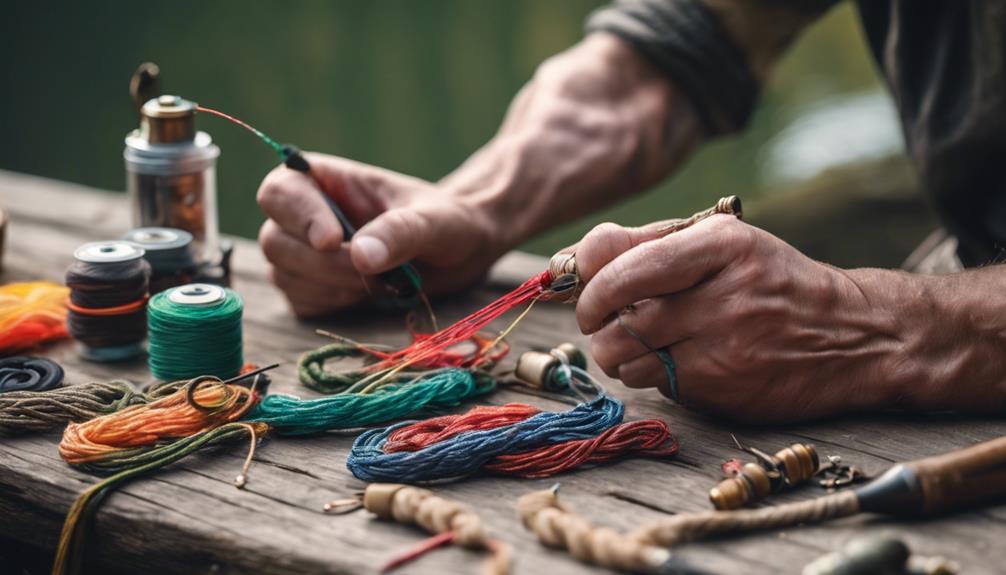Fishing is one of the most popular outdoor activities, providing relaxation, sport, and a way to connect with nature. However, before you cast your line, it’s essential to understand the legal requirements, particularly how long a fishing license lasts. In this guide, we will explore the duration of fishing licenses, variations by state, types of licenses available, and more, ensuring you have all the information you need for a successful fishing trip.
Understanding Fishing Licenses: What You Need to Know
A fishing license is a legal document that grants individuals the permission to fish in public waters. The requirement for obtaining a fishing license is standard across many regions, including the United States and Canada. However, the specifics can vary significantly based on your location. Typically, fishing licenses are issued by state or provincial wildlife agencies and can be required for both freshwater and saltwater fishing.
The primary purpose of a fishing license is to regulate the fishing population and ensure sustainable practices that protect aquatic ecosystems. Additionally, the proceeds from fishing licenses often fund conservation efforts, habitat restoration, and wildlife management programs.
How Long Does a Fishing License Last? Types of Licenses Explained
The duration of a fishing license can vary widely depending on the type of license you purchase and the regulations in your area. Most commonly, fishing licenses are issued for one of the following durations:
1. Annual License: This is the most popular option, typically lasting for one year from the date of purchase. An annual fishing license is ideal for those who fish frequently and want to avoid the hassle of renewing their license every few days or weeks.
2. Short-Term License: Many states offer short-term or temporary licenses, which can last from 1 to 14 days. This is perfect for tourists or occasional anglers who do not fish often enough to justify an annual license.
3. Lifetime License: Some states provide the option to purchase a lifetime fishing license, which allows you to fish for life without the need for renewal. This option can be more economical in the long run for avid fishermen.
4. Specialty Licenses: Certain regions may offer specialty licenses for specific types of fishing, such as saltwater fishing or fishing for particular species. The duration of these licenses can vary, so it’s essential to check local regulations.
Factors Influencing Fishing License Duration
When considering how long a fishing license lasts, several factors come into play. These include but are not limited to:
– State Regulations: Each state has its own rules regarding fishing licenses. Therefore, the length of time a fishing license remains valid can differ significantly from one state to another.
– Type of Fishing: Licenses for freshwater fishing may have different durations compared to saltwater fishing licenses. Always check with your local wildlife agency for the specifics.
– Age and Residency: Some states offer discounts or special licenses for seniors, disabled individuals, or residents versus non-residents. These factors can influence how long your fishing license is valid.
Renewing Your Fishing License: What You Need to Know
If your fishing license is set to expire, it’s essential to understand the renewal process. Most states allow for easy online renewal through their wildlife agency websites, making it convenient to continue fishing without interruption.
When renewing, make sure to check if there are any changes in regulations, fees, or license types since your last purchase. Additionally, consider whether you want to upgrade to a different type of license, such as switching from a short-term to an annual license, depending on your fishing habits.
Where to Purchase Your Fishing License
Obtaining a fishing license is straightforward, and there are several options to choose from. You can purchase a fishing license through the following channels:
– Online: Many states offer online portals for purchasing and renewing fishing licenses. This method is usually the most convenient, allowing you to complete the transaction from the comfort of your home.
– In-Person: Fishing licenses can often be purchased at local wildlife offices, sporting goods stores, and some convenience stores. This option allows you to ask questions and get immediate assistance.
– Mobile Apps: Some states have developed mobile apps that allow anglers to purchase and manage their fishing licenses digitally. This is a convenient option for tech-savvy fishermen who prefer to keep everything on their smartphones.
Consequences of Fishing Without a License
Fishing without a valid license can lead to serious consequences. Most states enforce strict regulations regarding fishing licenses, and violations can result in hefty fines, confiscation of fishing gear, and even criminal charges in severe cases.
Moreover, fishing without a license undermines conservation efforts and can negatively impact local ecosystems. To ensure a sustainable fishing experience for everyone, it’s essential to abide by the law and obtain the necessary permits before you fish.
Tips for Staying Compliant with Fishing License Regulations
To ensure that you remain compliant with fishing license regulations, consider the following tips:
1. Know Your Local Regulations: Always be aware of the specific fishing regulations in your state or province, including license requirements, fishing seasons, and bag limits.
2. Keep Your License Handy: Always carry your fishing license with you while fishing, as you may be required to show it to wildlife officers upon request.
3. Stay Informed: Regulations can change, so it’s crucial to stay updated on any changes to fishing laws that could affect your ability to fish legally.
4. Educate Others: Encourage friends and family who fish to understand the importance of obtaining a fishing license and adhering to local regulations.
Conclusion: Enjoy Your Fishing Experience Responsibly
Understanding how long a fishing license lasts is crucial for anyone looking to enjoy fishing legally and responsibly. By familiarizing yourself with the types of licenses available, the renewal process, and the regulations in your area, you can ensure a hassle-free fishing experience. So, gear up, get your fishing license, and enjoy the great outdoors, knowing you’re doing your part to protect our natural resources. Happy fishing!
